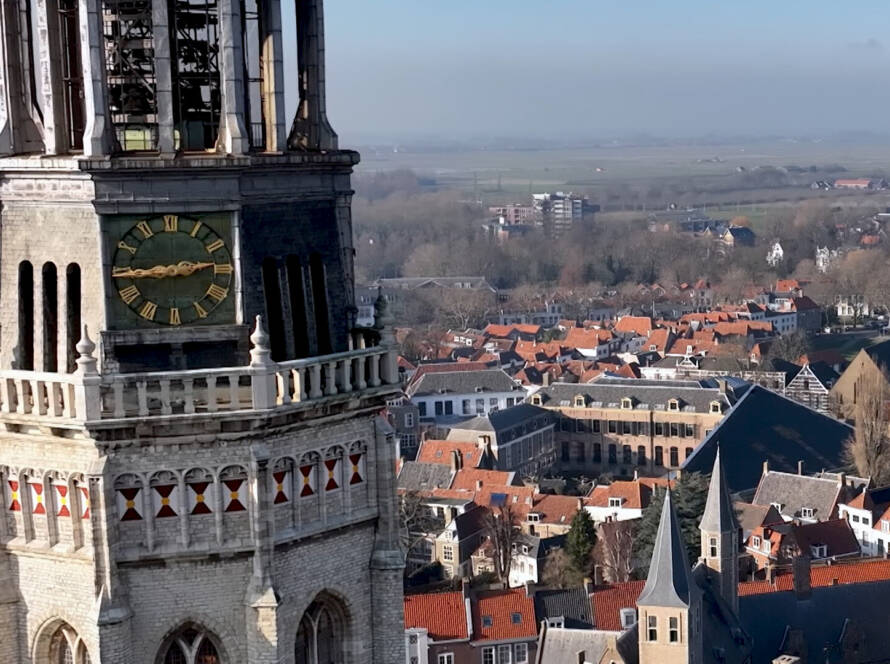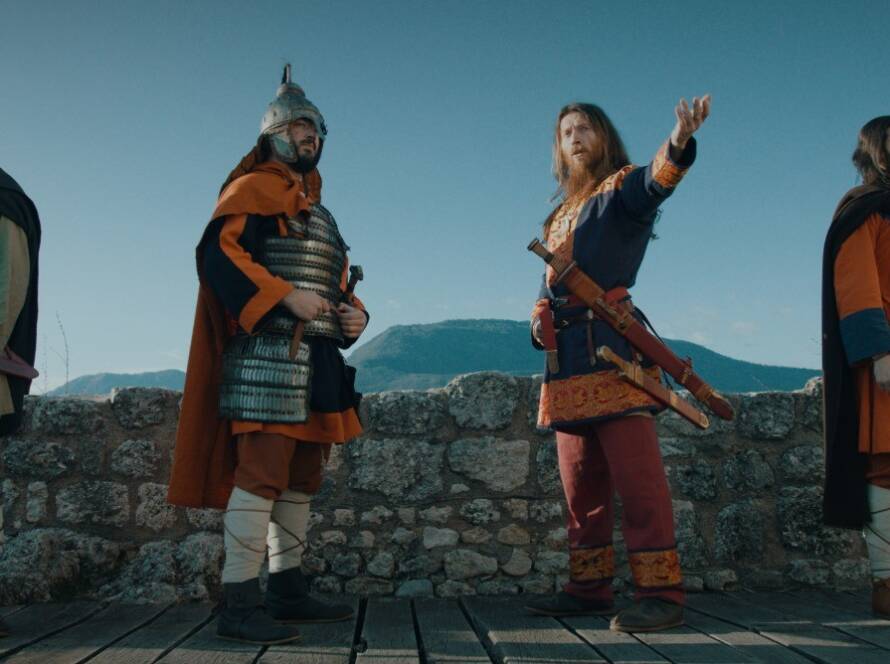The documentary recounts the period that the young Pier Paolo Pasolini spent in Casarsa, the Friulan birthplace of his mother Susanna. Those years, as he himself said, ‘were the highest moment of my life’. They were the years of cultural and poetic formation of a brilliant boy, avid for books and culture. Pasolini the poet is the fruit of the Friulian land, with its genuine romance language that becomes the inspiration for the young Pier Paolo’s first poetic collection.
In a land of peasants and sharecroppers, Pier Paolo promotes various cultural activities: poetry, singing, theatre, music, painting, football. He brings a great wave of change and hope to a Friulian countryside subjugated by the bosses and the war. The young Pasolini, is a master of life and culture who in the remote villages of the Friulian countryside is able to awaken and strengthen, first in himself and then in his pupils, a profound sense of identity and belonging.
Rosada and Ardilùt are the key words of this story. Rosada (dew) is a word that with its ancient sonority fascinates a nineteen-year-old Pier Paolo on a sunny morning in the summer of 1941, taking him back to the dawn of the Romance languages.
Ardilut is a wild herb, it is the symbol of the Academiuta di lenga furlana (Little Academy of Friulan Language) that Pasolini founded in 1945 with a group of peasant sons, who tried their hand at composing verses in Friulian.
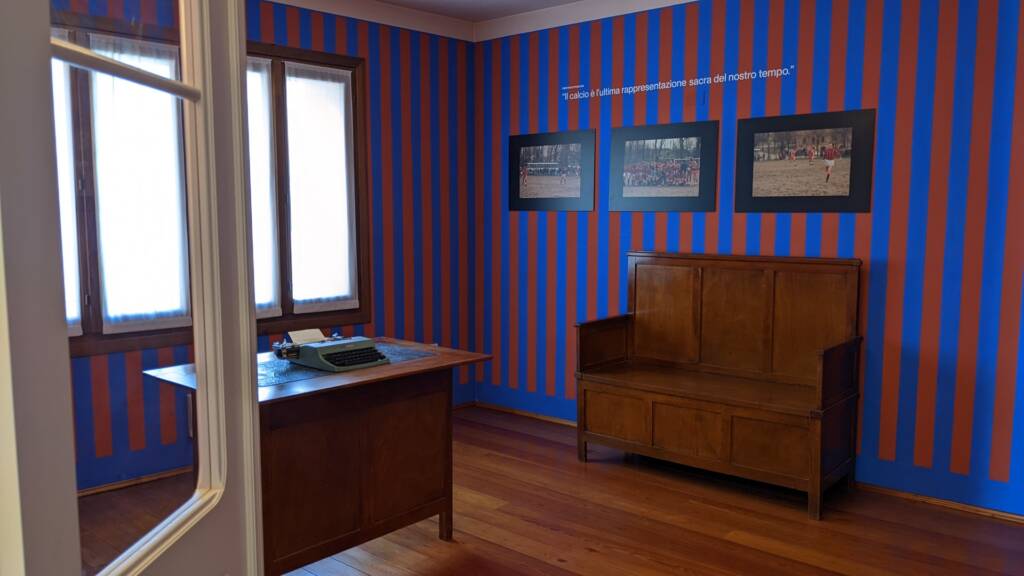
A feminine and motherly voice accompanies the narration. It is echoed by Pasolini’s Friulian verses and the moving testimony of Giuseppe Bertolin, Pasolini’s former pupil, the last precious witness of those years. His stories allow us to experience the memories and enthusiasm of that group of adolescents, who drew a wealth of literary and life lessons from the young teacher Pier Paolo.
The documentary retraces some of the places in Friuli where Pier Paolo Pasolini lived and worked in those years. From Casarsa to San Giovanni, from Versuta to the banks of the Tagliamento, passing through villages, small churches, courtyards, the countryside with its ever-present rows of mulberry trees. Places now real, now evoked through some re-enactments for which the director had the splendid and friendly collaboration of a group of young people from the area.
Director Biography – Roberta Cortella
SHORT BIO-FILMOGRAPHY
Roberta Cortella was born in Friuli (the far north-eastern part of Italy) in 1968. She grew up in a region that, because of its geographical position, can be considered multilingual and multicultural. This helped her to develop a curiosity for diversity and made the difference for her personal and professional training.
She got degree in Foreign Language and Literature at Udine University focusing her studies on the poetical and cultural roots of Pier Paolo Pasolini. Friuli was the scenario where he founded a makeshift school for the sons of the farmers, a land that marked the beginning of his artistic and public commitment.

In 1999 Roberta Cortella moved to Rome. Since then she has been implementing a solid 20 years of experience making documentaries and docu-series for a variety of production companies. (Blu Film, L’Immagine, Felix Film, Terra, Planeta Azul, Stemal Entertainment). She started her career as assistant director and assistant producer and gradually improved her skills as film consultant delivering key support to other authors and filmmakers. She collaborated in the development of initial stories and concepts into production-feasible fully planned projects.
She worked as scriptwriter in numerous documentary-films directed by Marco Leopardi (A little corner of Tibet, The last knights, Beyond the barrier, The marathon runner, Store a drop) but she also had the chance to work with other directors in Italy and abroad (The last dance, The sacred child, Looking for Sophia, Holy Week in Castilla y Leon) and to cooperate with institutions for the realization of commercials and corporate videos.
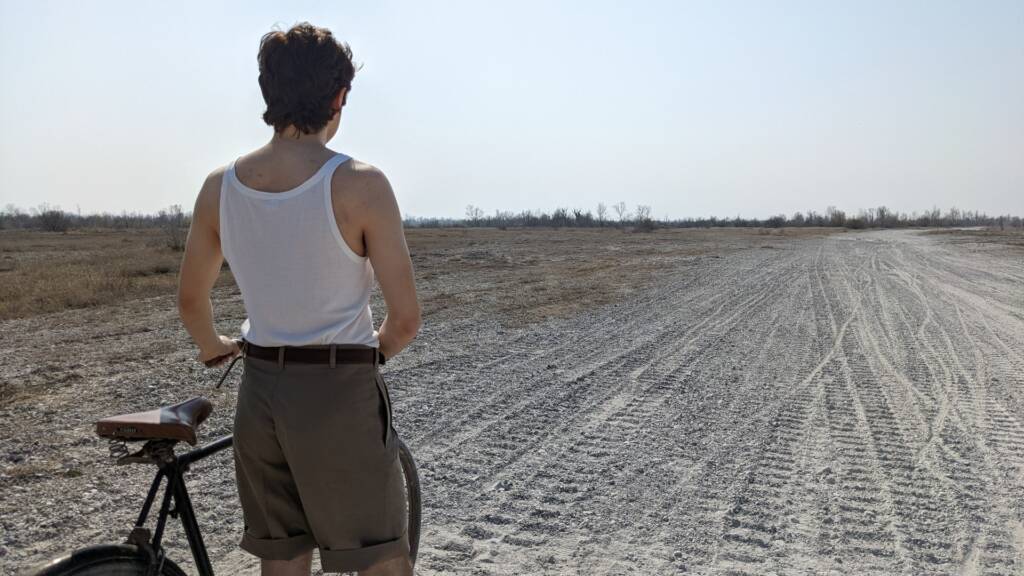
Her strong passion for telling stories took Roberta to the improvement of her creative writing aspiration, so in the last decade she has been writing subjects and scripts for documentaries and docu-series that she also directed. Most of Roberta Cortella’s works have been broadcasted by Italian and international channels (Television de Castilla, Television de Canarias, Rai, National Geographic International, Yle, Arte).
In the beginning of her authorial career she focused mostly on subjects related with nature, environment and anthropology (Storia di una Valle, Orissa, La Gomera, Algarve, The seedsavers, The Way to Santiago); later on she gradually drew her attention to character-driven subjects with strong human content.
In 2005 her subject “Living in a perfect work” was selected by National Geographic Channel International to be part of the “No Border” series. The feature-length documentary film was produced by L’Immagine and directed by Diego D’Innocenzo and Marco Leopardi. It portrayed the struggle of some Mennonite colonies in Mexico and Bolivia living in balance between tradition and modernity: some lived in isolation rejecting modern technology, some others started to open to the outside word.
During the years Roberta Cortella has been refining her interest for social issues and innovative points of view. This took her to write and direct the documentary-film “Walking on the right path” that was broadcast by DOC 3, Rai Tre. The author/director followed two young Belgian prisoners who had to take the challenge of a 4-month walking trip from Belgium to Spain. 2400 km on foot to reach Santiago de Compostela and to gain freedom back.
After such a strong experience in which Roberta Cortella could observe and document the positive effect of such enterprise on the boys, she joined the cause and struggled to introduce the walking method in Italy as a rehab measure for young offenders. “Walking on the right path” was the chance to open debates and to knock at the doors of both the Ministry of Justice and the Italian Television.
In 2018 she wrote and directed the docu-series Boez Andiamo Via a Rai Fiction-Stemal Entertainmet co-production, with the collaboration of the Ministry of Justice. Six inmates in detention, convicted for having broken the law, armed with hiking boots and backpackers, walked from Rome to Santa Maria di Leuca. The group, assisted by an educator and an expert guide, experienced sixty days of considerable physical effort. Through meetings, goals, reflections, discoveries and hopes they learned new ways of relate to each other and set up a new future (nomination at the coming Content Innovation Awards 2020).
In 2020 the new docu-series Boez Torniamo a casa unveils what happened to the six protagonists of the first season after the long walk. The journey had inspired them to build a new life, but going back home was not that easy. The boys had to deal with prejudices, search of work, unexpected situations that put their lives in balance between the right and the wrong path.
Roberta Cortella likes working in a creative team and in any of her films she collaborates closely with directors of photography, editors, musicians and directors of audiography to deliver projects from the technical perspective.
What she mostly looks for is to conceive stories that explore internal conflicts; stories that are able to bring back memories and emotions in the audience; stories that can educate, entertain and make the difference.
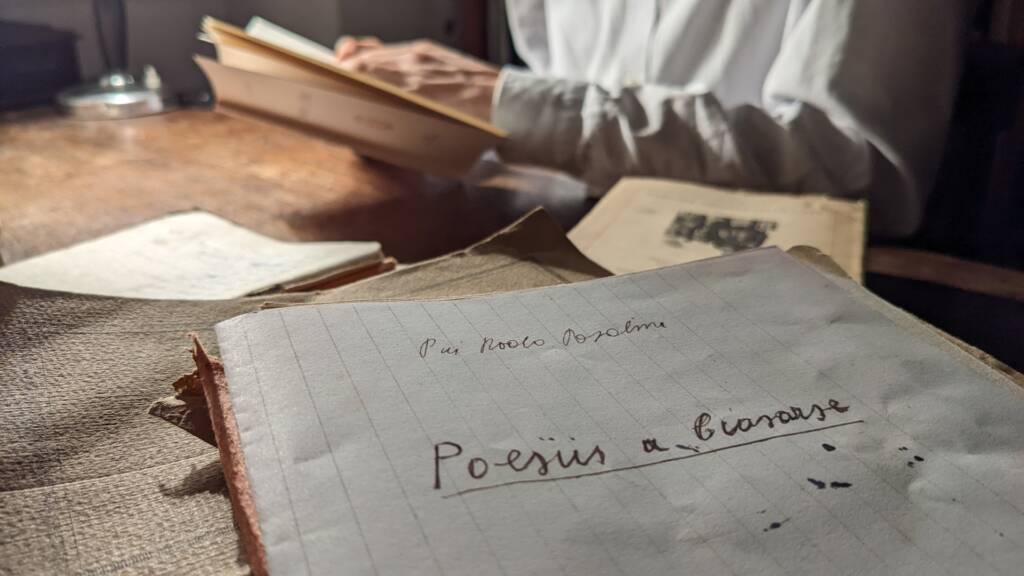
Director Statement
Note from the author
On 5 March 2022, celebrations begun for the 100th anniversary of the birth of Pier Paolo Pasolini, a man worldwide known as a director, writer, poet and great intellectual; a model of cultural openness out of time, often misunderstood, if not a source of scandal for his provocations and ideas that in many cases were ahead of his time.
A figure of international stature, yet Pier Paolo Pasolini is son of the Friulian land. His father was from Ravenna and his mother from Casarsa, half of his blood flowed in his veins from a land nestled between the distant contours of the north-eastern Alps foothills, the banks of the Tagliamento and an infinite plain, furrowed by irrigation ditches and rows of mulberry trees. To that land he returned every summer on holiday with his family. During the war years, he settled there permanently with his mother and his brother Guido.
In the 1940s, the life of the young Pier Paolo Pasolini unfolded ‘as in a novel’ between the University of Bologna and rural Friuli. His youth was a model of timeless creativity, perseverance and altruism because, as he himself wrote, he felt invested with a ‘mission not of power or wealth, but of education and civilization’, a mission that he began as soon as he was seventeen by spreading culture in the remote villages of the Friulian countryside.
The teacher Pasolini, with his works and life, is still able to spur the viewer to rediscover values such as dedication to others, knowledge, the diversity of the human soul, beauty, poetry, the appreciation of rural roots and communities, and social commitment.
The documentary tells the story of a young man who drags young people through a moment in history without certainties, who opposes their ignorance and their flight to other countries. Even decades later, today as then the young generations are living the same conflicts, the same social battles and are constantly searching for their own identity. The young Pier Paolo was a guide and inspiration for those young people, as is demonstrated by the fact that later in life, all those who had the privilege of being his studente ‘became somebody’. This is why the story of the young Pier Paolo is one that revives the value of knowledge and culture as instruments of growth and social redemption.
I was born and grown up in those same horizons described by Pasolini in his prose and poetry, I was weaned on that variety of Friulian from the right bank of the Tagliamento River that fascinated the young Pier Paolo, I studied the life and works of his Friulian years for years, wondering at every reading of his open and modern vision of the world. This documentary is a tribute to a figure who is still an inspiration to me, a desire perhaps to be a tiny and humble offshoot of that mission of education and civilization of which he, still very young, felt invested and of which we should all try to be a part.
Trailer
https://www.youtube.com/watch?v=XUgW2ya-ZgM
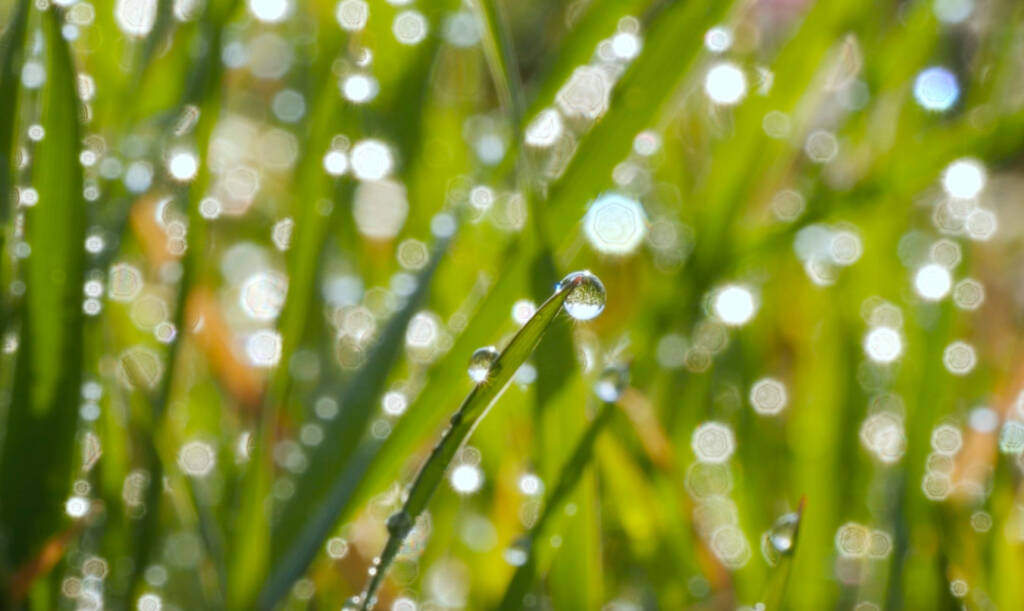
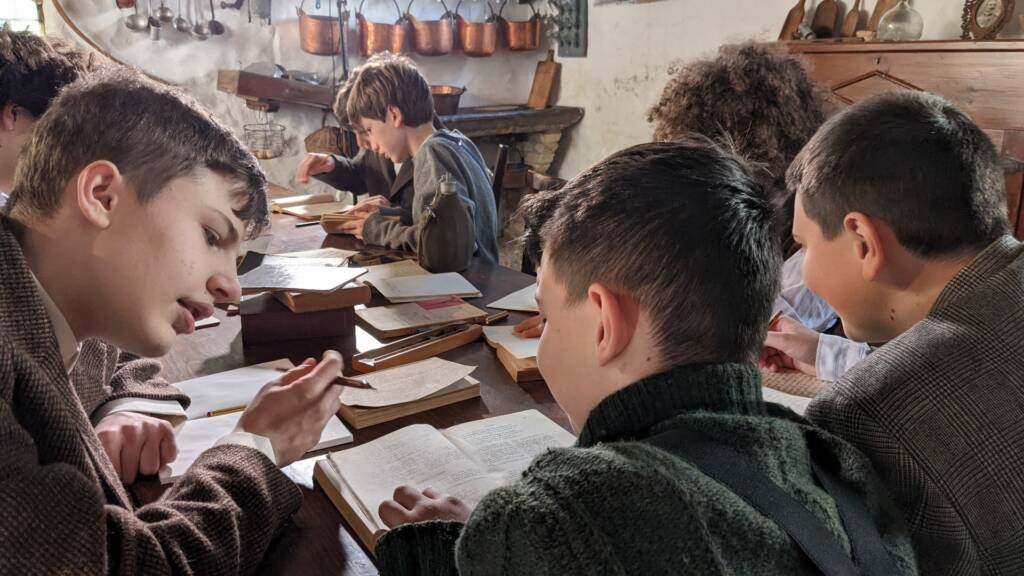
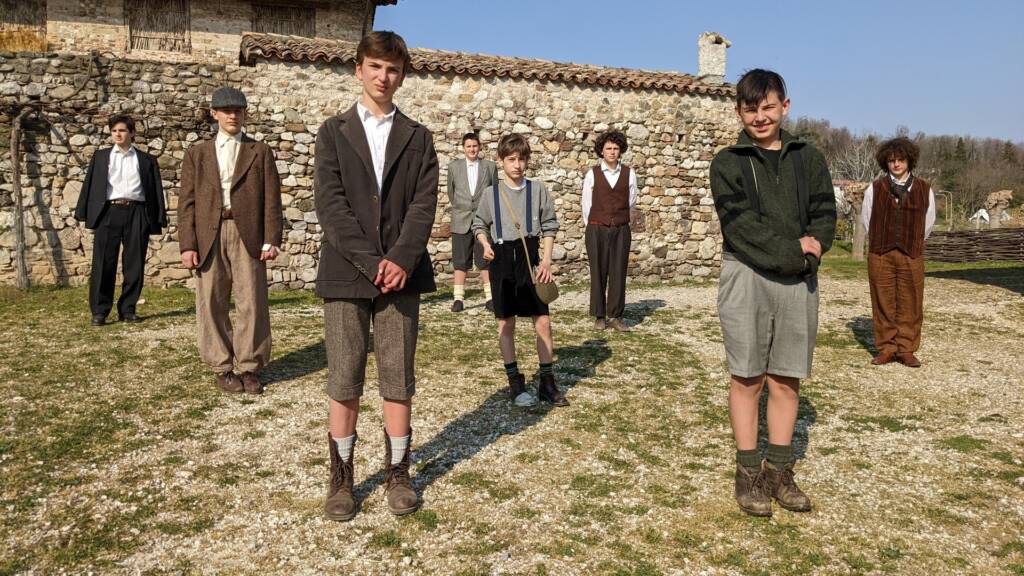
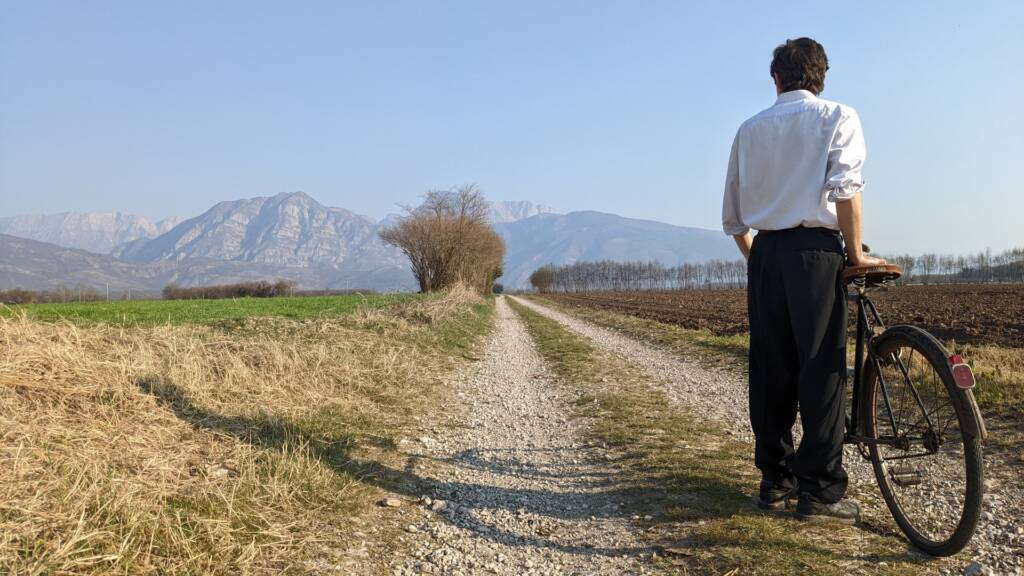
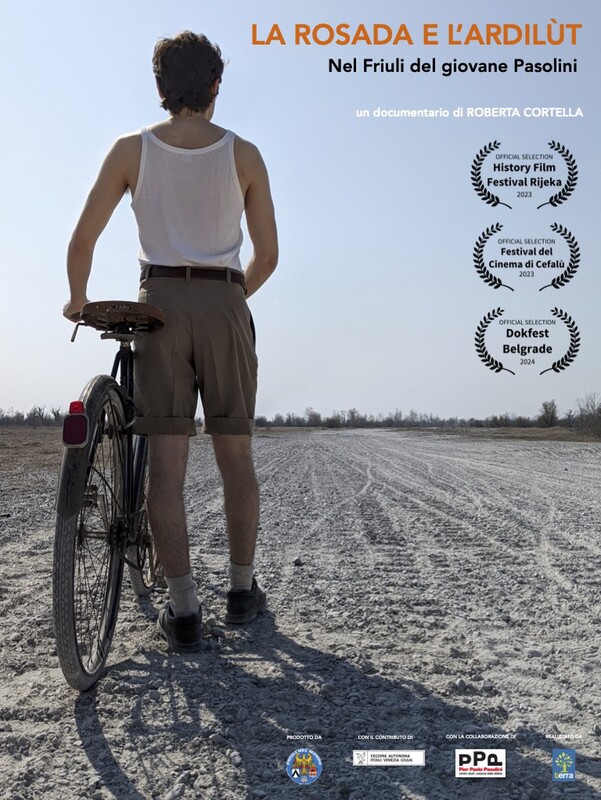
| Roberta Cortella Director, Writer Diego D’Innocenzo Producer Marco Leopardi Director of Photography |


